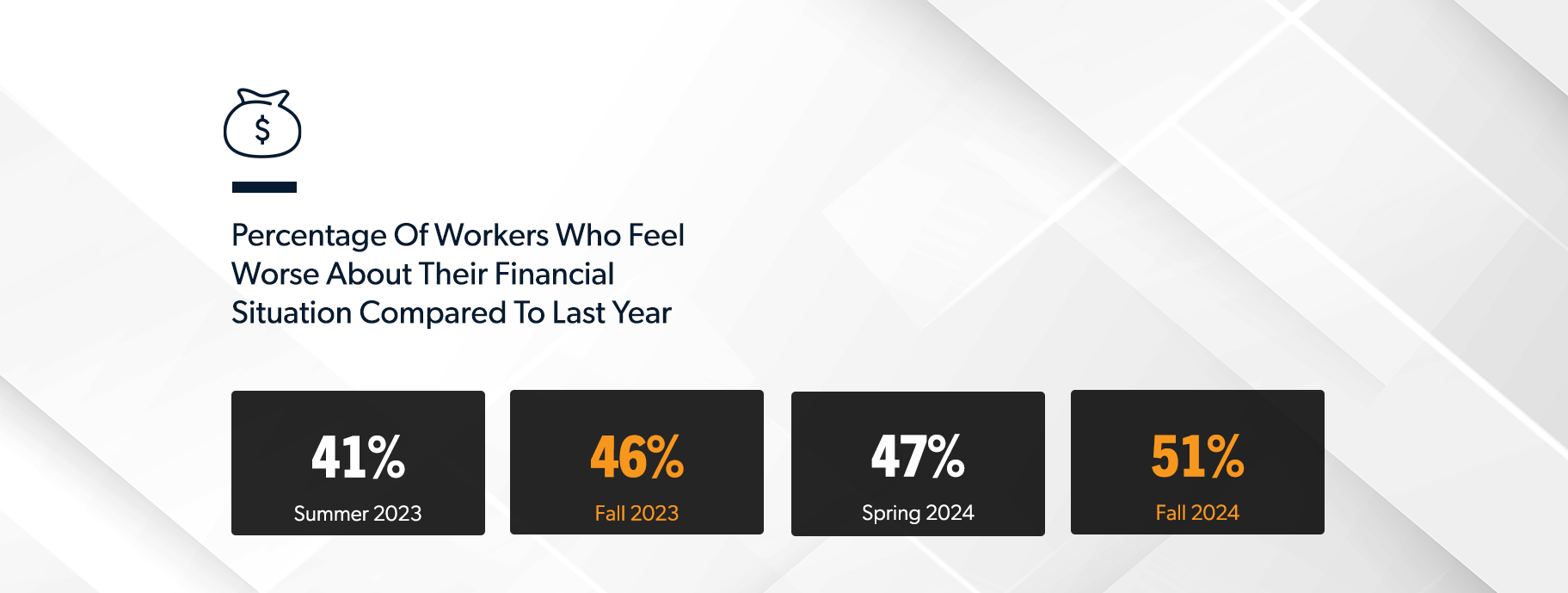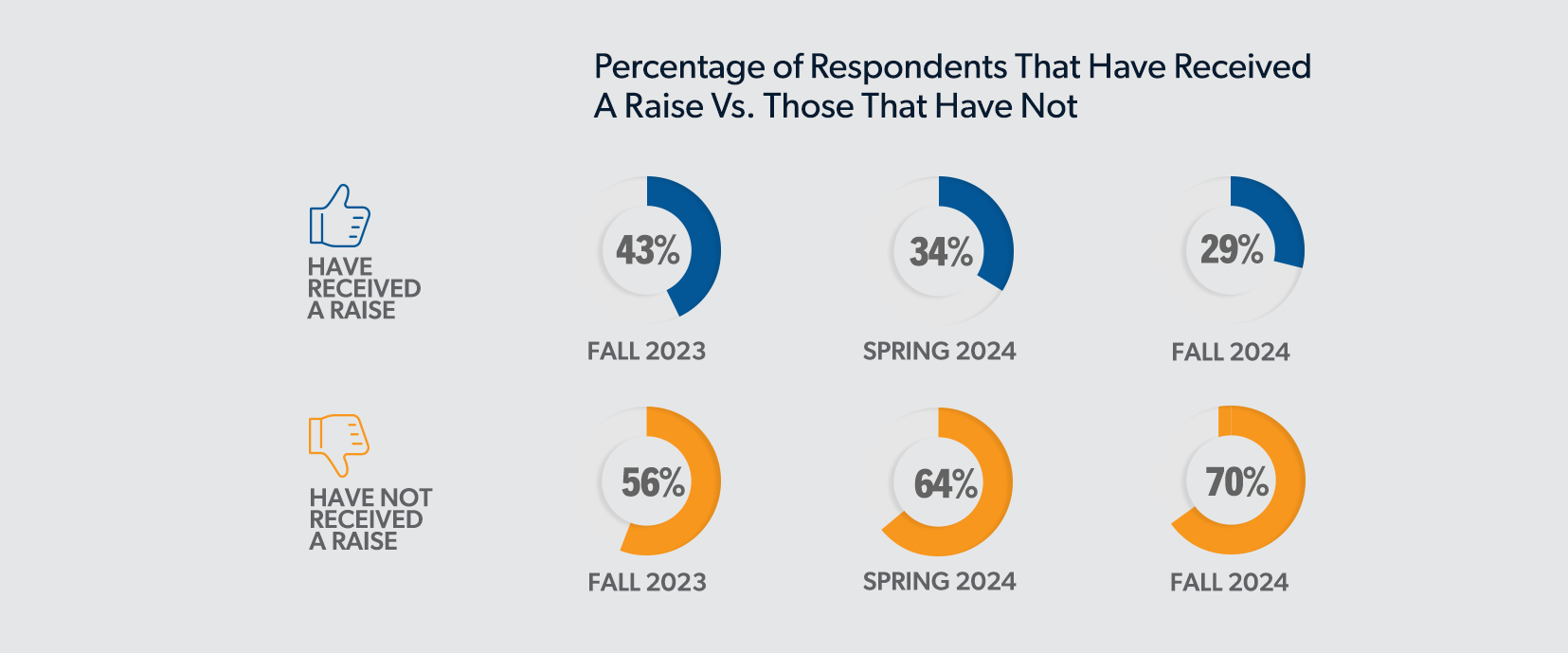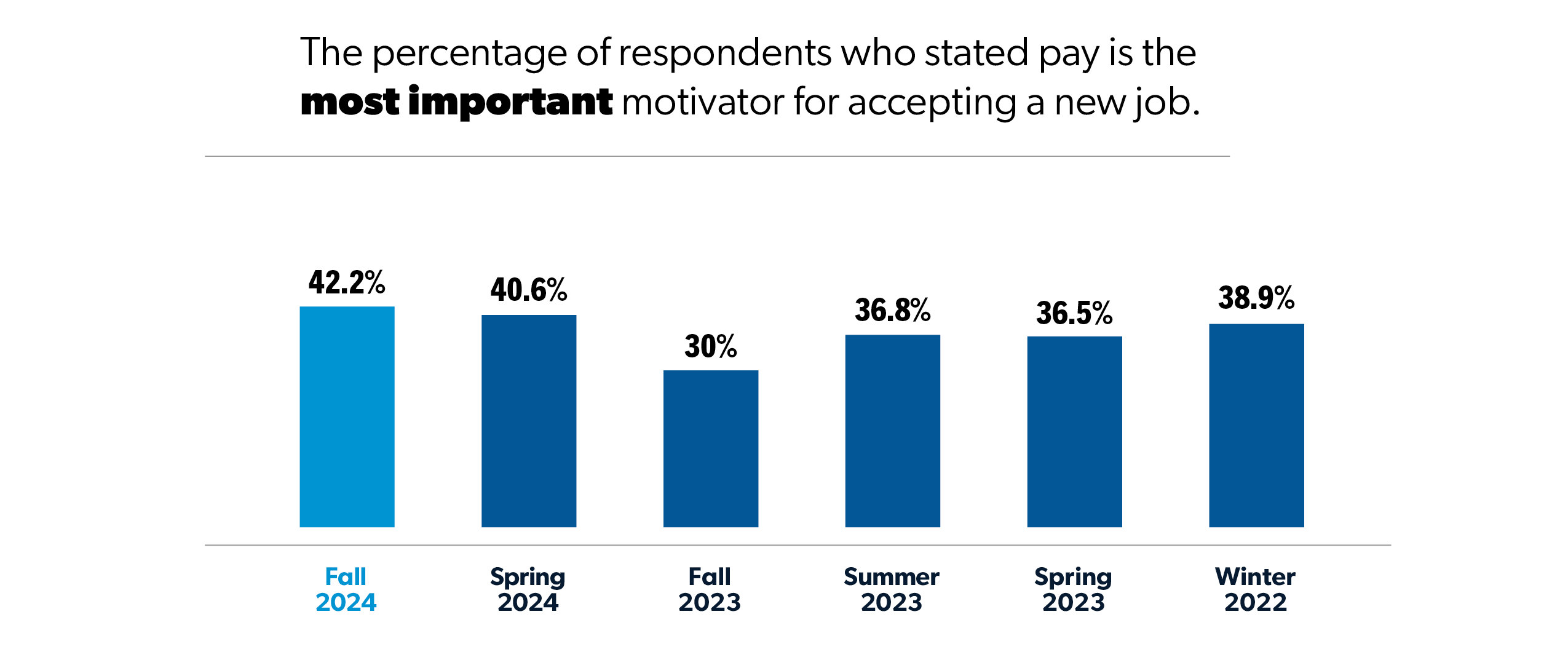Aerotek Job Seeker Survey: Employee Financial Well-Being on the Decline
It’s no secret that hiring is slowing down and according to research from Fannie Mae, wage growth for workers is showing signs of stagnation. Despite diminishing recession fears, the present hiring environment is affecting employees' financial well-being.
Over this past year, our Job Seeker Survey series has shown that respondents are struggling with longer hiring searches and putting in more effort to find work. The aggressive hiring that characterized the labor market in recent years appears to be fading. This adjustment highlights the challenge of wage increases versus inflation, casting a shadow on employees' financial well-being.
In our most recent Job Seeker Survey – we asked over 1,600 respondents “How would you describe your financial situation compared to this time in 2023?” 51 percent of respondents stated that they feel they are financially worse off compared to a year ago. This is up four percent from our Spring 2024 survey and a six percent increase compared to our Fall 2023 survey.

As the economy and job markets stabilize, workers are encountering fewer chances to enhance their financial standing. The number of jobs continues to outpace the number of available workers, but employers are becoming more selective and patient in their hiring processes.
Employee Financial Health Affected as Wage Growth Diminishes
Traditional methods of achieving wage growth like job searching and negotiating raises have become less successful in boosting wages compared to previous years. Our Job Seeker Survey revealed that fewer respondents received a raise in the past year. This highlights a labor market where earning a wage increase is more challenging. Additionally, wage growth lagging behind inflation worsens the difficulty for workers to keep up with the cost of living.

This data demonstrates a clear trend: fewer workers are receiving raises, which directly impacts their financial stability and satisfaction. As employers navigate a more selective hiring landscape, it is crucial to recognize the growing importance of competitive compensation and other benefits to retain top talent. Addressing these issues proactively will not only enhance employee retention but can also contribute to a more motivated and productive workforce.
Improving Employee Financial Health Beyond Pay Raises
Yes, employee financial wellbeing plays a crucial role in the employer-worker relationship. In our Job Seeker Survey series, respondents consistently cited pay as their top motivator for accepting a new job. According to the most recent survey, 42 percent of job seekers identified pay as the top priority, representing the highest percentage recorded in any of our surveys.


To retain top talent, it is crucial for employers to recognize the importance of competitive compensation and other benefits. Additionally, creating a more attractive workplace by promoting social connections, offering opportunities for collaboration, and clearly communicating paths for career advancement can significantly improve employee retention and motivation. Addressing these issues proactively will not only enhance employee retention but also contribute to a more motivated and productive workforce.

